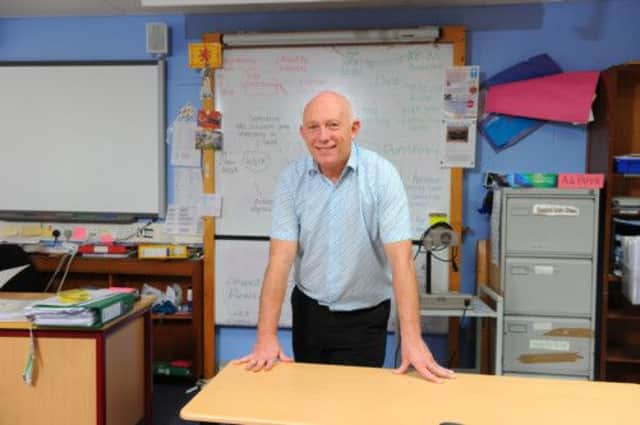Hugh Reilly: Schools faith policy away with fairies


Thanks to my membership of the Tufty Club – a public health organisation whose logo was a rather disturbing buck-toothed beaver – opportunities to cunningly hide an ex-wobbly tooth under my pillow and awake a cash-rich kid were somewhat limited. However, each time a biter had parted from my gum, I had received a shiny sixpence, objective evidence, if it were needed, of The Tooth Fairy’s existence. Sadly, my faith was shaken to the root when, aged eight, my reward was a mere threepenny bit (naively, I did not link the copper coin’s appearance to the fact that my dad had been on strike for three weeks). Disappointed, I found myself being radicalised by the iconoclastic ideas of the atheistic toothless army. Very soon, Santa was on my demi-deity hit list. Giving up on horoscopes and God proved bigger challenges but, regarding the latter, I finally daintily dismounted my Catholic donkey when still a teenager.
As a pluralist and a democrat, I don’t lose sleep over the spiritual proclivities of any individual. For example, I recently attended a Catholic wedding where most of the fellow gift-buyers, sorry, guests bizarrely believe a piece of white wafer to be the actual flesh and blood of a person killed in a human sacrifice to save others. Fanciful stories of a Semite curing lepers or greatly upsetting officials overseeing the registration of deaths by capriciously resurrecting a hitherto lifeless corpse, make a right riveting read. But I fail to comprehend why folk who take these tales as Gospel are permitted to sit on local authority education committees and have a vote. Decisions to close schools or award a school meals contract to a private company should not be in the hands of people who think Moses to be a messenger of The Almighty when he demanded Israelites heed the utterances of burning organic material.
Advertisement
Hide AdAdvertisement
Hide AdUnder the 1994 Local Government (Scotland) Act, councils are legally bound to appoint a minimum of three God-fearers – one from the Catholic Church, one from the Church of Scotland and one that reflects the religious beliefs of the local community. Since Druidism and Scientology struggle to even achieve cult status in Scotland, that third appointee is usually drawn from an established, albeit minority religion.
The Edinburgh Secular Society is demanding a change to the legislation in light of the fact that our communities are largely secular. When not being used as preferred backdrops for weddings and funerals, churches enjoy attendances on a par with gaggles of ladies waiting to tee off at Muirfield. As a consequence of education for all, fewer people believe that a cloud-dwelling Big Brother carries out covert surveillance on our every move and thought.
In my Neville Chamberlain moments, it crosses my mind to appease the superstitious industry by allowing its unelected, unaccountable representatives to have some input on the Religious Education syllabus; but then I remember that my fervent wish is to abolish all school-based religious propaganda. The education system is the only public service which is obligated to give power to worshippers. Logically, not to have Church delegates on NHS health boards smacks of discrimination. In these times of austerity, a few Christians holding the levers of hospital powers could save the nation millions on pesky abortions and futile safe sex campaigns. But why stop there? It’s an outrage that Water Boards do not offer executive positions for those who wish to express a religious position on the supply of water (perhaps inspired by New Testament liquid alchemy at a Canaanite festivity, fundamentalist zealots would propose a hostile takeover of the wine-making industry).
As an atheist, I don’t go round chapping doors proselytising my non-beliefs. Neither do I demand that I be given a place on an education committee to give a voice to the God-denying silent majority. Religion should be a private affair, not a State-funded trivial pursuit for aficionados of the non-rational.
In our multicultural society, having religious delegates on local authority education committees is an anachronism. However, given the disproportionate amount of power that organised faith still exerts in Scotland, it may take a miracle to get rid of them.